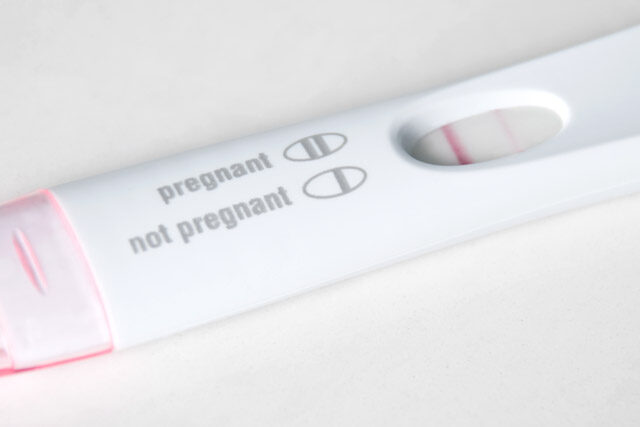Scientific research on the incidence of male factor infertility revealed that 40 – 50% of couples struggle to become parents due to male reproductive system problems. For this reason, male fertility testing has become a common practice in recent years. In this post, we’ll talk in detail about the types of male fertility testing, possible causes of the issue, and treatment options a man may be offered.
What Is Fertility Tests for Men?
To detect any fertility problem, your healthcare provider may offer you to pass some tests. Usually, these involve total sperm count and sperm motility testing, as well as semen volume test and motile sperm concentration, and some others. All these should typically be performed at the doctor’s office.
To be able to perform any type of semen analysis, a man needs to provide a semen sample. Some individuals have a hard time overcoming the psychological discomfort of the procedure, as it’s not easy to ejaculate in the doctor’s office.
Luckily, now there’s a way to perform testing at home. Track Male Fertility Testing System is an FDA-approved male fertility testing kit that can be performed at home. This kit allows checking all the basic parameters of the semen, including its volume and sperm count. Based on the results of the scientific evaluation of the kit, it’s super easy to use and provides really accurate results.
It’s also worth mentioning that a special mobile app allows interpreting your results based on WHO semen parameters data. Another benefit of using this at-home testing kit is that male fertility testing cost is much lower than in-office testing.
Causes of Male Infertility
Male reproductive health is very sensitive to both internal and external factors. Any deviation from the norm can result in being unable to conceive and have a baby. The most common causes of male infertility include:
- Abnormalities in the production or function of the sperm. Here belong oligospermia (poor quality sperm), azoospermia (the absence of sperm in the semen), sperm malformation (like sperm without a tail), and low sperm motility.
- Certain genetic disorders (Klinefelter syndrome, Noonan syndrome, chromosomal translocations, etc.).
- Sperm delivery issues caused by testicles or penile injury, blockage of the ducts in the testicles, inability to ejaculate, or premature ejaculation.
- Previous illnesses or some chronic health conditions. Infertility may be caused by varicocele, gonorrhea, HIV, diabetes, mumps, or chlamydia.
- Exposure to intoxicating external factors. Working with certain chemicals, pesticides, and radioactive substances and materials can influence sperm count and motility, thus causing fertility issues.
- Harmful habits, such as smoking cigarettes, taking drugs, and drinking alcohol, significantly affect the male ability to conceive.
- Intake of certain medicines can also result in poor sperm quality and infertility.
- Exposure to heat. The fans of saunas and hot tubs put themselves at risk of infertility as high temperatures negatively affect the sperm production process.
Male Infertility Symptoms
Diagnostic of male infertility is done based on the couple’s being unable to conceive after a year of trying for a baby. In such cases, both partners undergo a series of tests to determine the source of the problem. Typically, the cause of the inability to fertilize the egg is found after passing male fertility testing.
In fact, the only symptom signaling male infertility is their inability to conceive. Still, you may suspect some fertility issues if you:
- produce a small amount of semen;
- cannot ejaculate due to ejaculation disorder;
- cannot get your penis erect due to erectile dysfunction.
Male Infertility Testing
Male fertility testing usually involves a range of research aimed at determining the exact cause of the inability to conceive. Below, you’ll find some types of checkups that you may be recommended in your male factor infertility treatment journey.
Semen Analysis
Semen analysis is performed by a trained specialist. All you need to do is to pass a semen sample and wait. This test involves checking the following parameters of the sperm:
- motility;
- shape;
- volume;
- count, etc.
Please note that deviation from some parameters does not necessarily mean that you are infertile. It’s quite common that men with low sperm count or semen abnormalities have no trouble having a baby. On the other hand, men with no sperm issues may face difficulties on their way to parenthood.
Usually, doctors order two semen tests to confirm the results. If both appear normal, your inability to conceive is not related to sperm quality.
Genetic Testing
Genetic testing involves the revision of your genes for the most common genetic translocations and abnormalities that may affect your ability to fertilize the egg. Genetic abnormalities can cause the inability to conceive and early miscarriages due to poor-quality genetic material.
Hormone Evaluation
Hormonal causes of infertility are extremely rare. Still, your doctor may recommend checking your testosterone and some other hormone levels to ensure the production of semen is not violated by hormonal factors.
Urinalysis
Urinalysis is a type of urine test. It is used to track five biomarkers in the male urine that may signal the medical condition called normozoospermic infertility, which means your sperm is infertile. This type of testing is recommended in patients whose other tests showed no signs of deviation from the norm, but who are still unable to grow their families.
Testicular Biopsy
A testicular biopsy involves taking a tissue sample from the testicles with the help of a special biopsy needle. By studying the semen sample, your fertility specialist will be able to tell precisely whether the problem is sperm production or transportation.
How Is Male Factor Infertility Treated?
No matter how challenging your infertility journey can be, you should know that many infertility treatment options can help you become a father.
Preventative Care
As we’ve mentioned, external factors play a significant role in male fertility. The good news is you can work to prevent them and avoid difficulties growing your family. Here’s what you can do:
- use protective clothing and equipment when working with toxic materials and substances;
- minimize exposure to heat;
- use condoms to protect yourself from sexually transmitted diseases;
- quit smoking and limit alcohol consumption;
- protect your genitals from possible injury;
- check if any medicines you take can affect your fertility.
Medications
Depending on the cause of your infertility, your fertility specialist may suggest several types of medicinal treatment for your condition:
- Clomid, also used in female infertility treatment, can help men increase sperm count and improve non-obstructive azoospermia.
- Anastrozole used off-label has shown to be effective for sperm count enhancement and improved sperm production.
- HCG (human chorionic gonadotropin) stimulates the production of sperm in the testes.
- Coenzyme Q10 is sometimes prescribed to boost sperm motility and integrity. It can also be used for the treatment of pyospermia.
Fertility Care
If conservative methods of infertility treatment fail, there are several other options to consider:
- Surgery. This method can be used in men whose fertility struggles are provoked by obstructions in the seminal ducts or varicocele.
- Direct sperm retrieval is a method of treatment recommended in men whose infertility is caused by obstructions in the reproductive system, which cannot be fixed with surgery.
- Assisted reproductive technologies, like IVF, can also become an option for an infertile patient. This procedure involves the fertilization of the egg with the male sperm in the laboratory with the following embryo transfer to the female partner’s uterus. If male germ cells are infertile, donor sperm can be considered.
Summary
Male infertility is as common as female. Luckily, modern male fertility testing methods allow the detection of the problem early and effectively. And once you know what causes your condition, you’ll be offered many solutions. So, infertility is not a sentence. It’s a struggle you can win by applying some time and effort.
FAQ
How Do Male Fertility Tests Work?
Male fertility testing requires a semen sample to be studied under the microscope to evaluate the quality and the count of the sperm. Home tests look for specific proteins present in semen only.
How Much Is Male Fertility Testing?
The male fertility testing cost depends on the number of tests you ordered. Also, at-home testing is cheaper than that offered in-office. Anyway, be ready to pay $200 and up.
What Doctor Does Male Fertility Testing?
A urologist is a doctor you should visit to get tested for male infertility.
Does Insurance Cover Male Fertility Testing?
Typically, insurance programs do cover male fertility testing. However, they rarely cover the treatment of infertility.




